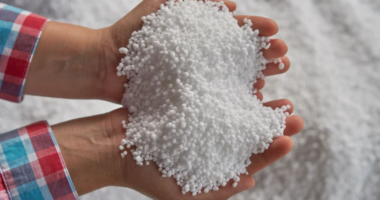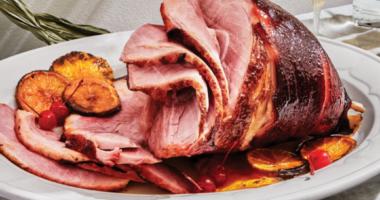Broccoli is a member of the cruciferous vegetables family, which includes cauliflower, kale, bok choy and Brussels sprouts. However, broccoli is a different animal, and deserves some special treatment.
There are many reasons to take advantage of the benefits of broccoli. The vegetable is full of fiber, vitamins, minerals, and antioxidants, yet is low in calories and fat. Broccoli is also an excellent source of calcium, folate, magnesium, and potassium, all of which contribute to a healthy mind, body, and spirit.
Broccoli belongs to the brassica family of vegetables that are rich in fiber and were first domesticated over 5000 years ago in the Mediterranean. Its edible flowers give it an odd, bitter taste and it has a long shelf-life, so it is highly versatile and can be used in many different ways.. Read more about broccoli nutrition facts 100g and let us know what you think.
Updated 23. June 2023, based on a medical opinion from
Are you a fan of broccoli or not? While broccoli has an acquired taste, it is a very nutritious vegetable that packs a lot of nutrients into a little amount of calories. It’s also said to offer a lot of health advantages. Is there, however, any evidence to back up these claims?
In this tutorial, you’ll discover all there is to know about broccoli and how to integrate it into your diet.
Begin your risk-free 30-day trial now!
Get immediate access to low-carb and keto meal plans, quick and simple recipes, medical experts’ weight reduction advice, and more. With a free trial, you can start living a healthy lifestyle right now!
Begin your risk-free trial now!
What exactly is broccoli?
Broccoli (Brassica oleracea italica) is a leafy green vegetable that dates back to the sixth century BC in Italy. Broccolo, which means blooming cabbage in Italian, is the source of the name.
Broccoli is a member of the cruciferous family, which includes Brussels sprouts, cauliflower, and white cabbage, among others. When these veggies are chopped or cooked, they produce chemicals with a sulfur scent that is both recognizable and powerful.
The most prevalent broccoli varieties are:
- Calabrese broccoli is the most common type in the United States, often known as Italian green broccoli. It produces huge heads with tiny buds called inflorescences and sturdy green stalks.
- Broccoli: Similar to Calabrian broccoli, sprouted broccoli has thinner stems and tiny heads with green or dark purple inflorescences.
Brocoflora, a hybrid between broccoli and cauliflower, and broccolini, commonly known as baby broccoli, are related vegetables. Brocoflora is a cross between broccoli and cauliflower.
Nutritional Values of Broccoli
Broccoli is an excellent source of a variety of vitamins and minerals, with vitamin C being especially abundant.
100 g (3.5 oz) chopped raw broccoli (about a cup):
- 89 mg vitamin C (149 percent of the recommended daily allowance or RDA)
- 102 micrograms of vitamin K (127 percent of the RDA)
- 63 mg folate (vitamin B9) (16 percent of RDA)
- 623 IU vitamin A (from beta-carotene) (12 percent of RDA)
- 0,2 mg vitamin B6 (9 percent of the RDA)
- 316 mg potassium (9 percent of RDA)
- 47 mg calcium (5 percent of RDA)
- 0.7 mg iron (4 percent of RDA)
Broccoli may lose some nutrients while cooking since vitamins C and B are water soluble, depending on the technique employed. When exposed to heat and water, other nutrients become more stable.
Broccoli that has been steamed or microwaved maintains almost all of its vitamin C, while deep-frying produces minor losses and heating lowers vitamin C concentration by up to 50%. When broccoli is cooked, it loses a lot of its folic acid and other B vitamins.
In comparison to many other foods, broccoli retains a high level of vitamin C even after cooking. Furthermore, heating cruciferous veggies makes them simpler to digest for the body.
Broccoli may be steamed, microwaved, baked, or boiled. You’re still receiving plenty of vitamins and minerals.
All macronutrients, or macros, are present in modest quantities in broccoli. A cup of raw broccoli has 3 grams of protein, 0.4 grams of fat, and 7 grams of total carbs, 3 grams of which are fiber.
Broccoli also has a number of phytochemicals (plant compounds) that give it its color, fragrance, and flavor.
What is the calorie count of broccoli?
A cup of chopped raw broccoli (100 grams) has just 34 calories.
The calories (and nutrients) in a cup of cooked broccoli are somewhat more than in a cup of raw broccoli. When heated, it loses water and becomes more compact, similar to many other vegetables.
Cooked and diced broccoli has 55 calories per cup (150 grams), which is still extremely low.
Counting calories, on the other hand, is not something we encourage. If you’re attempting to lose weight, including broccoli in your diet, along with heart-healthy meals high in protein and fat, may be a successful approach.
Is broccoli a high-fiber food?
Broccoli includes fiber, a non-digestible carbohydrate component that may help some individuals with constipation and irritable bowel syndrome (IBS). Fiber has been linked to a variety of health advantages, including reducing blood sugar and cholesterol levels. It may also help you feel full and suppress your appetite.
5 grams of fiber are found in one cup of cooked and chopped broccoli. It includes both soluble and insoluble fiber, much as other plants. Check out our list of 15 fiber-rich foods to discover more about additional foods that may help you get more fiber.
Broccoli has a low carbohydrate content.
Low-carb diets may help individuals lose weight and better manage their type 2 diabetes, according to systematic evaluations of high-quality randomized studies.
Broccoli, like other surface veggies, has a low net carb count. Broccoli has approximately 4 grams of net carbohydrates per cup, making it a good choice for people following a low-carb or ketogenic diet.
Is it true that broccoli has health benefits?
Because of the compounds included in cruciferous vegetables like broccoli, they have been shown to protect against cancer and other illnesses. Sulforaphane, whose precursor, glucoraphanin, is plentiful in early broccoli sprouts, is one among them.
However, the majority of the research connecting broccoli to improved health has been done on animals or in test tubes, which is considered extremely poor evidence.
Observational or epidemiological studies provide further information on broccoli and health. Many of these studies indicate that individuals who consume the most cruciferous vegetables have a reduced risk of illness and live longer, according to some experts.
Observational studies, on the other hand, cannot offer accurate information on the health consequences of particular diets. One issue is that most studies depend on self-reported food consumption through meal frequency surveys, which have been criticized for being extremely incorrect.
Furthermore, individuals who eat a lot of cruciferous vegetables are less likely to smoke and are more likely to have a healthy diet, frequent exercise, moderate alcohol use, and other health-conscious habits than those who consume less.
In other words, observational studies cannot show that particular diets lower illness risk or improve health. They can only demonstrate the connection between the behavior (eating broccoli, for example) and the outcome (e.g. better health).
More information about this may be found in our guide to observational and experimental research.
Several clinical studies have looked at the benefits of broccoli, broccoli sprouts, and broccoli sprout extract on a variety of health markers thus far. Some studies found that eating broccoli or broccoli oak extract reduced blood levels of inflammatory markers, but not all. Other research suggests that broccoli extract may help to decrease blood sugar levels, enhance insulin sensitivity, and improve some heart disease risk factors in certain people.
While some of these experiments yielded promising findings, others were less so. Furthermore, several of these trials utilized broccoli sprout extracts rather than raw broccoli, and the majority were small-scale or short-term.
While it is certainly conceivable, if not probable, that consuming broccoli and other cruciferous vegetables improves health and lowers disease risk, we will need many more high-quality human experimental trials to know for sure.
Most importantly, your entire diet and lifestyle, rather than a single item, have a far greater impact on your health.
Recipes and ideas for broccoli
Of course, not everyone like simple broccoli. However, when mixed with natural fat, it takes on a whole different – and frequently delightful – appearance! – Trial.
Here are a few ways to prepare broccoli that are both tasty and nutritious:
- Fresh broccoli is cooked and seasoned before being drizzled with melted butter.
- Drizzle the chopped broccoli with olive oil and garlic on a baking sheet lined with parchment paper. Preheat oven to 400 degrees Fahrenheit (200 degrees Celsius) and bake for 15 to 20 minutes.
- We promise you’ll love roasted broccoli with butter if it’s served fried.
- Use leftover broccoli in an omelet or a salad with a creamy dressing as a postscript.
Are you pressed for time? Use broccoli that has been frozen. It has been washed, sliced, and is ready to use in the microwave, steamer, or pan.
Also, have a look at these delectable broccoli recipes:
Broccoli is a member of the Brassica family, which also includes cabbage, brussel sprouts, and cauliflower. It is a starchy, green veggie that is a good source of vitamin C, fiber, and folate, and a good source of riboflavin, thiamin, and vitamin B6. One cup of broccoli contains about 25% of your daily value for vitamin C, about 10% of your daily value for fiber, and about 10% of your daily value for riboflavin, thiamin, and vitamin B6.. Read more about broccoli nutrition usda and let us know what you think.
Related Tags
This article broadly covered the following related topics:
- broccoli nutrition facts 1 cup
- broccoli nutrition
- broccoli nutrition facts and health benefits
- broccoli benefits
- broccoli protein


